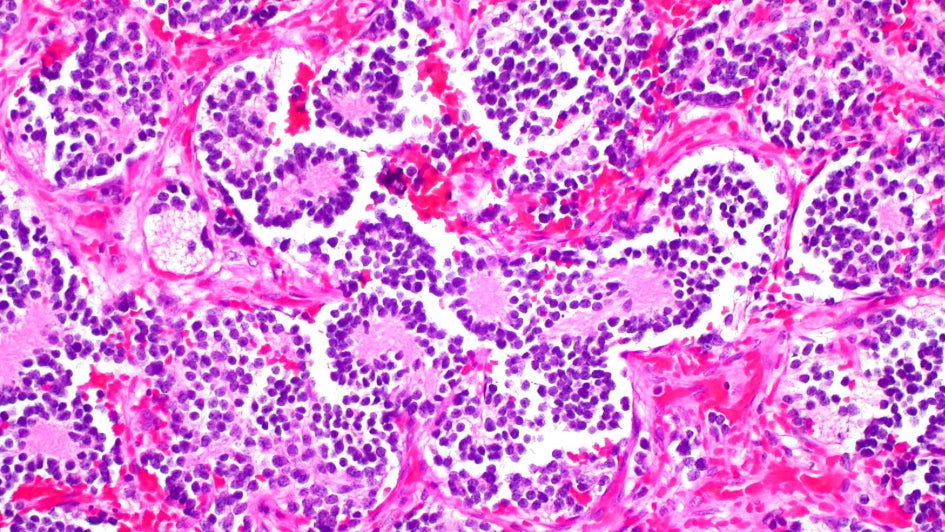
The Institute of Cancer Research (ICR) in the UK is set to conduct clinical trials of a new drug candidate, fadraciclib, to potentially treat the aggressive childhood cancer neuroblastoma.
The drug showed encouraging safety profile in adults and will progress to a clinical trial in children by the year-end, scientists at the ICR said.

Discover B2B Marketing That Performs
Combine business intelligence and editorial excellence to reach engaged professionals across 36 leading media platforms.
Every year, around 85 children are diagnosed with neuroblastoma, a hard-to-treat nerve tumour with high chances of recurrence even after intensive therapy.
Current therapies used for treating aggressive types of neuroblastoma are considered intense and can cause long-term side effects in younger patients. Hence the need for less toxic medication, the scientists noted.
According to reports published in The Journal of Clinical Investigation, the ICR team has developed an indirect approach to target N-Myc, a gene found in aggressive neuroblastoma.
Discovered by scientists at the institute in alliance with Cyclacel company, fadraciclib could effectively hinder N-Myc activity by stopping its production.

US Tariffs are shifting - will you react or anticipate?
Don’t let policy changes catch you off guard. Stay proactive with real-time data and expert analysis.
By GlobalDataA study conducted on mice showed that fadraciclib delayed and stabilised tumour growth and increased the survival rate as compared to untreated animals.
The team also analysed the effect of fadraciclib along with chemotherapy drug, temozolomide, in mice. The combination was found to shrink the tumours to the point of virtual eradication.
Institute of Cancer Research Paediatric Cancer Biology professor and lead author Louis Chesler said: “Our study opens up the potential to treat children with aggressive cancers, such as neuroblastoma, with a class of precisely targeted cancer medicines that may be smarter and kinder.”
Clinical trials for the drug will be carried out under the international E-SMART trial supported by Cancer Research UK in the country.
Researchers also plan to analyse whether fadraciclib can be used to treat other aggressive childhood cancers, breast tumours and mixed lineage leukaemia.





